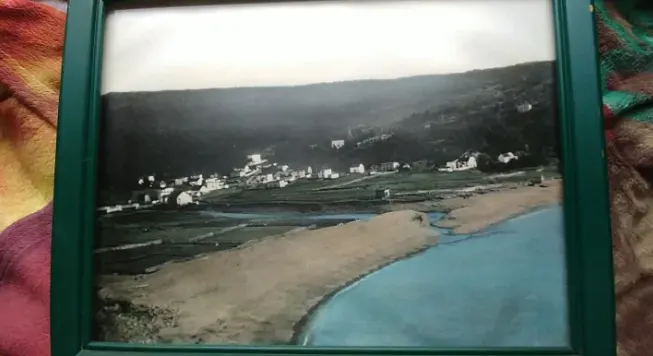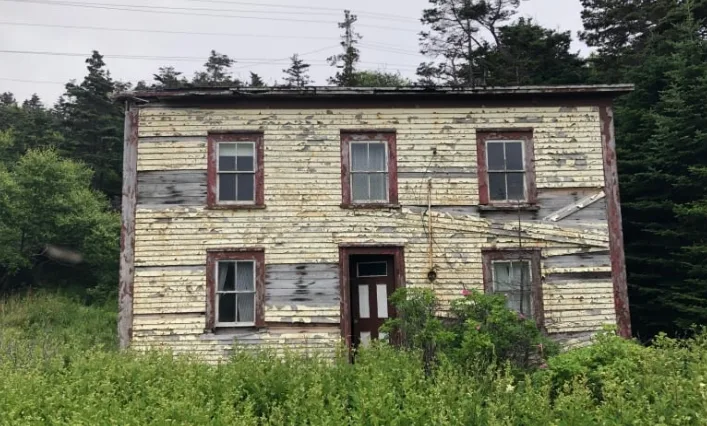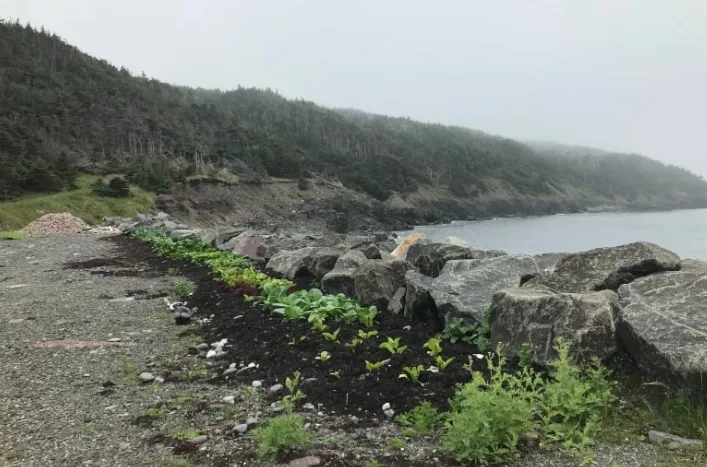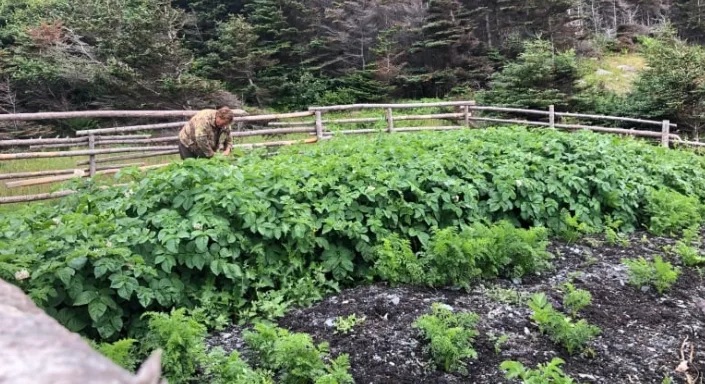
A look at life in this Canadian town with a population of 3
When you take the highway out of Placentia during a trip around the bay, you'll probably drive through Ship Cove and not even realize it.
It doesn't look like a town. To the untrained eye, it's a barn, three houses and a dilapidated shack buried in brush. And Ship Cove isn't officially registered as a town either — but it does exist. It's just easy to miss because over the decades its population has shrunk to just three.

Stanley Tobin, left, with his brother Finbar and his dog Rusty. (Adam Walsh/CBC)
"People died off and there wasn't very much here to keep young people here," says Stanley Tobin.
SEE ALSO: Photos of Canada's ghost towns
On most days, the beautiful sandy beach in Ship Cove — along with those three homes — is appreciated by Tobin alone. The only people living with him in this town are his son and his son's wife.

A photo of Ship Cove during its heyday. (Tina Cleary)
It wasn't always like this.
"This was a fishing community of sorts. It wasn't a big fishing community, would have had no boats here," he said.
"After the early '60s, people started to move out."
PEOPLE COME AND GO
Tobin understands why Ship Cove shrunk so dramatically.
The costs of keeping a small town like his going is high, he said, when you consider road maintenance, snow clearing, electricity, phone service, school buses and emergency services.
"I don't know if it's a good thing that people become more centralized but there's no way that we could afford — the province couldn't afford — to keep those smaller communities alive," he said.

A roughly 100-year-old house in Ship Cove. It has no running water, and Tobin says he lived there in the early days of his marriage. (Adam Walsh/CBC)
"And it's the sign of the times, I guess."
Centralization is part of what drew people from Ship Cove over the years, from what Tobin estimates was a peak population of 60 to 70 people. But he can't blame the town's former residents for leaving to find work elsewhere.
"You know, a lot of the people that I grew up with moved on, and they probably had life easier," he said.
"You got to be generating a bit of income in order to not just walk away from it."
COMMITTED TO THE COMMUNITY
But even if Tobin understands why others left Ship Cove, he says he never will.
"I stay here by choice. And enjoy every moment of it," he said.
"But at times it came with a price, you know. It's a good way of staying in poverty."
Ship Cove isn't technically a town; it's not incorporated, though Tobin has considered doing so.

Tobin's beachside garden. He calls it the 'salad bar.' (Noah Laybolt/CBC)
"I toyed around with the idea of having it incorporated, and I went out to all the inhabitants here — there were a few more people here then. They were all in favour for it — let's go for it, let's get it incorporated," he said.
"But I think the government probably saw it as, this fella's looking for a money grab or something. You know, and he wants to get a grant. Which is not what I wanted it all, it's more of a novelty thing, you know."
Incorporated or not, in Ship Cove Tobin does have a garden by the beach where he grows leafy greens. He drives down in his truck, usually with his dog, and eats from what he calls his "salad bar."
"Bok choy. It's the recipe for living forever. There's a few people that hope that's not gonna happen," he says as he picks the vegetables from the ground.

Stanley Tobin tends to his garden by the beach. (Adam Walsh/CBC)
Tobin's grandfather's house is near that beach. He says it's more than 100 years old, and he lived there in the early days of his marriage.
The house had two wood stoves in it, but no running water, and offered shelter — not everything you might want, he said, but what they needed, much like Ship Cove itself.
"It's too stubborn to fall down."
This article was originally published by CBC News and written by Noah Laybolt.










